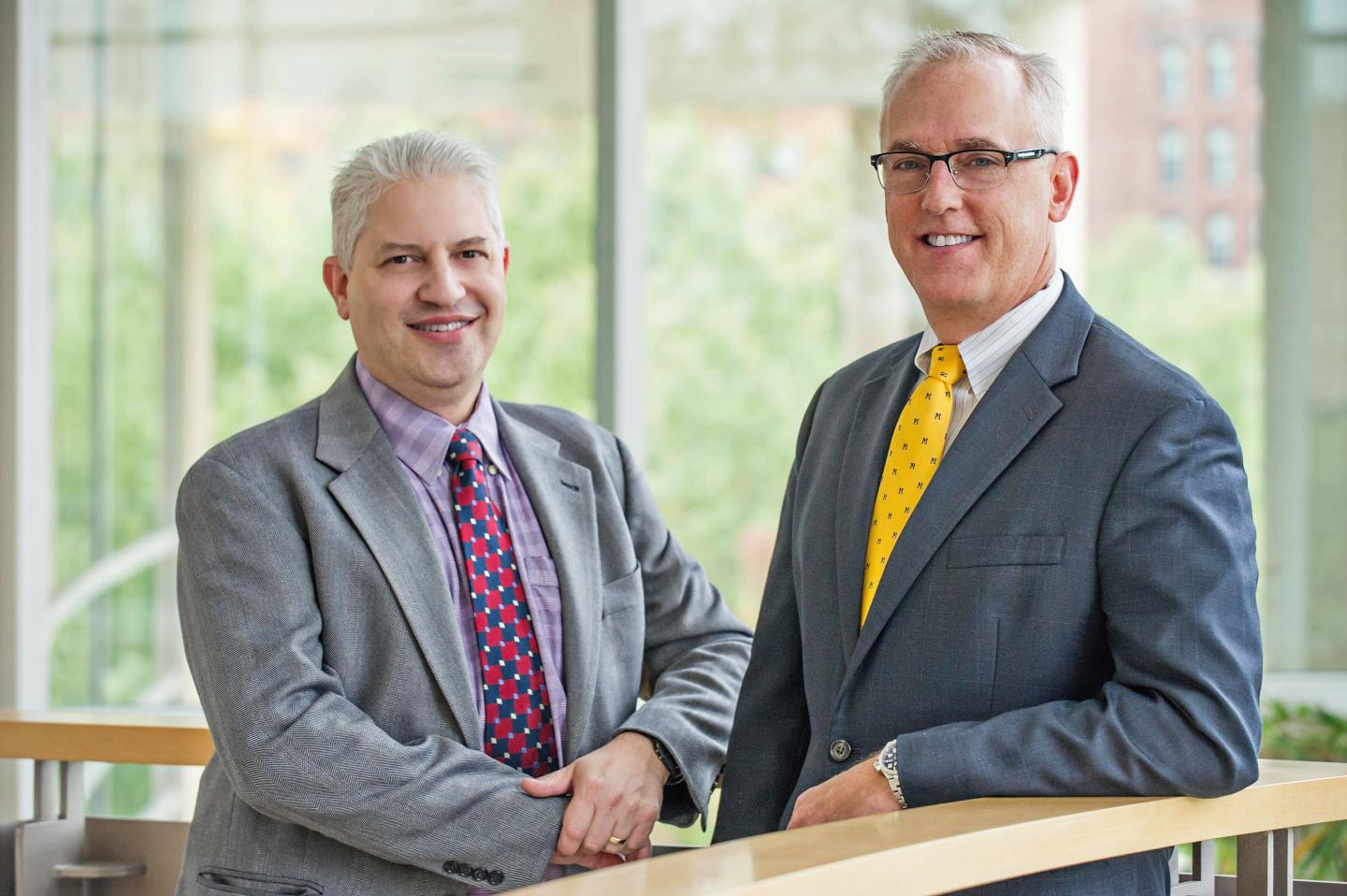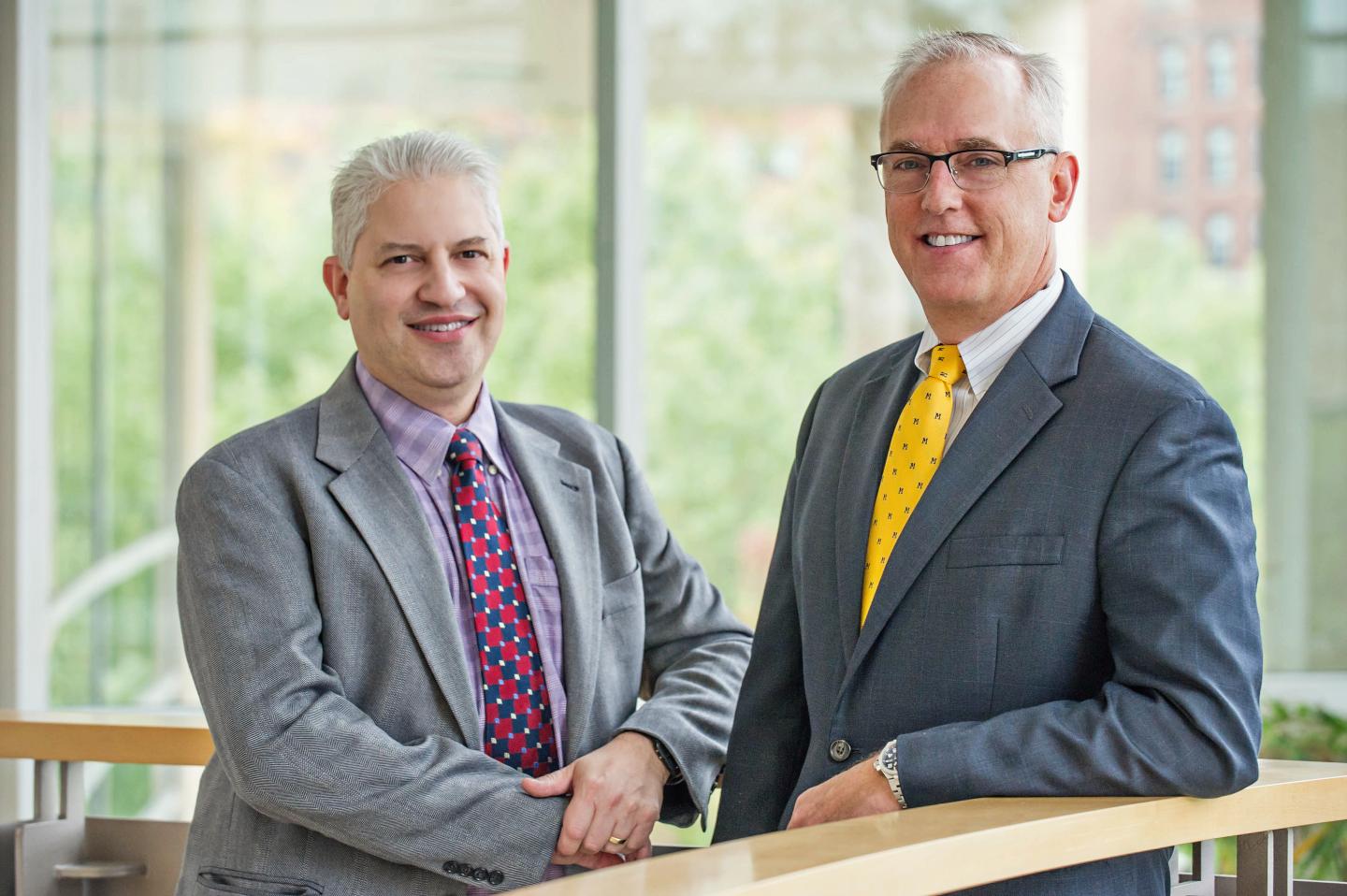
Credit: University of Michigan Health System
ANN ARBOR, Mich. – The University of Michigan was recently awarded funding from the National Institutes of Health to establish an institutional career development program for advanced training in emergency critical care research.
The program, named the U-M K12 Career Development Program in Emergency Critical Care Research, is one of four training sites in the country and seeks to prepare early career clinician scientists for leadership roles and independent research careers in emergency care research.
Among the four programs supported by the NIH, the U-M program has a unique focus on clinical research in critical illness and injury.
The training will recruit four junior faculty scholars with diverse backgrounds and a passion for emergency critical care research and pair each scholar with a multidisciplinary mentoring team. The mentoring team will help the scholar create a three-year customized individual career development plan and then work with them to achieve milestones focused on academic courses, professional development training, expert consultations and research.
Scholars will receive:
- A broad knowledge and training in modern clinical and translational science
- Coursework to address gaps in scientific training
- Instructive and experiential training in intellectual/philosophical approaches to modern investigation and technology development
- Improved scientific and grant writing skills
- Enhanced research mentoring and leadership skills
The scholars will be able to choose from mentoring teams led by experienced and highly published senior clinician-scientists in emergency medicine, pulmonary and critical care, neurology, general and trauma surgery, cardiovascular disease, biomedical engineering, and biostatistics.
"This program will allow these junior faculty scholars to learn the most effective ways to perform clinical research in emergency critical care," says Robert Neumar, M.D., Ph.D., co-leader of the program and chair of emergency medicine at U-M. "Scholars will be guided by mentors with active NIH funding with the goal they personally transition to individual funding by the end of the third year of the program."
Neumar will co-lead the new program with David Pinsky, M.D., chief of cardiovascular medicine and director of the U-M Frankel Cardiovascular Center, demonstrating the support of faculty from across U-M.
"Dr. Pinsky and I are enthusiastic about this new program and the possible bench to bedside advances that could arise from it," Neumar says. "We are constantly seeking new ways to improve outcomes for patients and we hope this program will encourage the next generation of clinician-scientists to become actively involved in cutting-edge research happening at this institution."
The program will be housed in the Michigan Center for Integrative Research in Critical Care, which is administratively anchored within the U-M Department of Emergency Medicine. MCIRCC encourages collaborative and interdisciplinary research on acute illnesses and injuries. The scholars will become affiliates of MCIRCC, the Cardiovascular Center Clinical Research Group and other relevant multidisciplinary research centers at U-M.
"These research centers will further demonstrate to the scholars the importance of cross-cutting collaboration," Pinsky says. "The scholars will get a taste of the breadth of emergency and critical care research happening here at U-M and how it can potentially transform the future of patient care."
###
Disclosure: This program is supported by the National Heart, Lung, And Blood Institute of the National Institutes of Health under award number K12HL133304. The content is solely the responsibility of the authors and does not necessarily represent the official views of the National Institutes of Health.
Media Contact
Kylie O'Brien
[email protected]
734-764-2220
@UMHealthSystem
http://www.med.umich.edu





